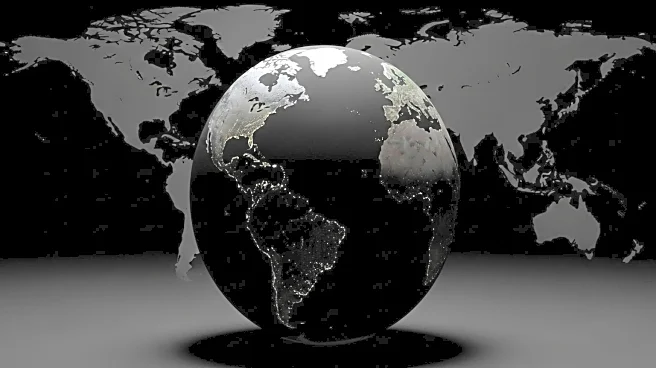What is the story about?
What's Happening?
Afghanistan is currently experiencing a nationwide internet blackout following directives from the Taliban to sever fibre-optic connections in several provinces. This action is part of the Taliban's efforts to prevent what they describe as 'vice.' The blackout has resulted in national connectivity dropping to 14% of normal levels, according to Netblocks, an organization monitoring cybersecurity and internet governance. The disruption affects both internet and telephone services, as they often share the same infrastructure. The Taliban's crackdown on internet access began earlier this month, with high-speed internet being shut down in various regions. The provinces affected include Badakhshan, Takhar, Kandahar, Helmand, Nangarhar, and Uruzgan. The Taliban has not provided a detailed explanation for the blackout, but it aligns with their broader restrictions since regaining power in 2021.
Why It's Important?
The internet blackout in Afghanistan has significant implications for the country's connectivity with the outside world, especially during ongoing humanitarian crises. The United Nations has expressed concern over the potential harm to the Afghan population, who are already facing challenges such as a recent earthquake, the return of refugees, and severe drought conditions. The blackout further isolates Afghanistan, hindering communication and access to information. This move could exacerbate the country's economic struggles, as the internet is a crucial tool for business operations and international trade. The Taliban's actions may also impact foreign relations and aid, as international organizations rely on communication networks to coordinate assistance efforts.
What's Next?
The Taliban has indicated that alternative connectivity options will be implemented across the country, but details remain unclear. The international community, including humanitarian organizations, may increase pressure on the Taliban to restore internet services to facilitate aid and communication. The situation could lead to further diplomatic discussions or interventions aimed at addressing the humanitarian needs of the Afghan people. Additionally, the Taliban's continued restrictions may prompt further scrutiny and potential sanctions from global entities concerned with human rights and freedom of information.
Beyond the Headlines
The internet blackout in Afghanistan highlights the broader issue of digital rights and access to information under authoritarian regimes. The Taliban's actions raise ethical questions about the balance between governance and individual freedoms. The situation also underscores the vulnerability of infrastructure in conflict zones, where control over communication networks can be used as a tool for power and suppression. Long-term, this development could influence global discussions on internet governance and the role of international bodies in safeguarding digital access.














